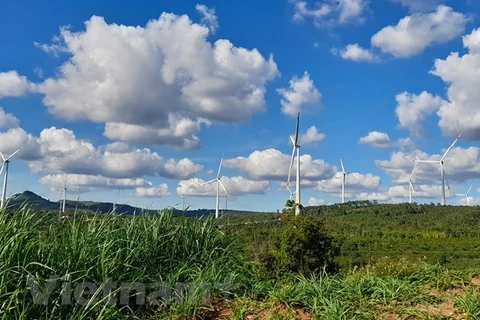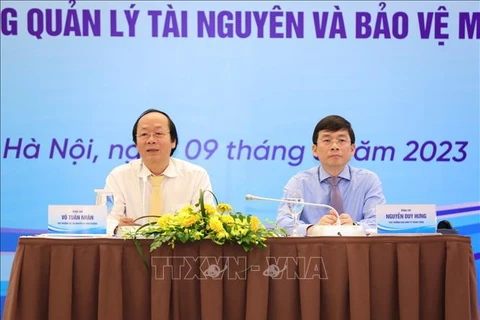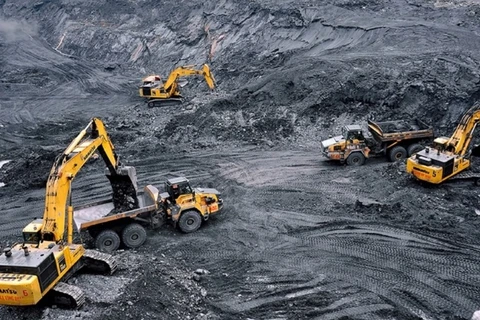Hanoi (VNA) – The Ministry of Natural Resources and Environment (MONRE) on August 11 held a workshop reviewing ten years of implementing the 11th Party Central Committee's Resolution No.24-NQ/TW on proactive responding to climate change.
Participants in the workshop focused on evaluating the achievements, shortcomings, and limitations during the implementation process as well as discussed new perspectives and specific goals, tasks, and solutions on responding to climate change in the coming time.
Speaking at the event, Deputy Minister of Natural Resources and Environment Le Cong Thanh affirmed that over the past ten years, Party committees and authorities at all levels, social communities, and people have actively implemented the resolution. Institutions and policies to respond to climate change have been improved, and investment in natural disaster prevention and climate change responses was increased.
Tang The Cuong, Director of the MONRE’s Department of Climate Change reported to the workshop that up to now, all specific goals set in the resolution were all achieved, of which the target of reducing greenhouse gas emissions per unit of GDP had exceeded the set target.
The results show the strong determination of the Vietnamese Government in realising the dual goals of economic development and reduced greenhouse gas emissions, Cuong said.
According to him, the Prime Minister has promulgated a list of sectors and facilities that have to carry out an inventory of greenhouse gases. The country also recorded positive outcomes in reducing and eliminating substances that deplete the ozone layer, complied with international commitments, and build a project on developing the domestic carbon market. Vietnam has also joined the international carbon credit exchange under the clean development mechanism and rolled out the joint credit mechanism with Japan.
Vietnam’s capacity for natural disaster forecast, warning, and monitoring has been enhanced. Its climate change scenarios were updated periodically in 2016 and 2020 and flood maps were built to help localities to implement solutions for socioeconomic development and adaptation to climate change more effectively.
Losses in human lives and property caused by natural disasters have decreased significantly, with a decrease of 18% in human loss and 34% in material loss in 2018-2022 compared to the previous period 2013-2017.
Most localities have issued plans to implement the Paris agreement on climate change and to respond to climate change. The Government issued Resolution 120/NQ-CP on sustainable and climate-resilient development of the Mekong River delta to transform the region’s growth model for sustainable and prosperous development.
Many important contents in the resolution have also been actively implemented, bringing practical effects such as community-based and climate change-resilient livelihood models, national target programmes and national science and technology programmes to respond to climate change.
Vietnam also strengthened international cooperation in climate change responses.
Recently, Vietnam adopted a political declaration establishing a Just Energy Transition Partnership (JETP) with partners, which is the driving force for energy transition and the development of renewable energy and other energy sources toward the carbon neutrality goal by 2050./.

























